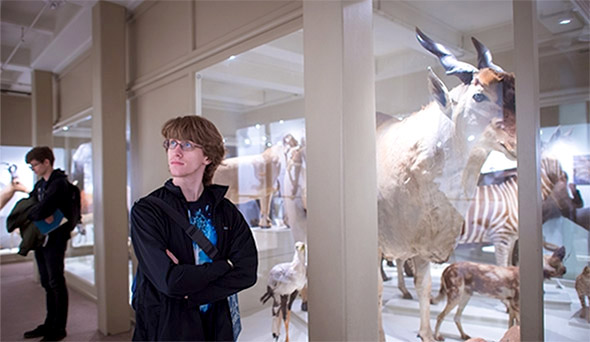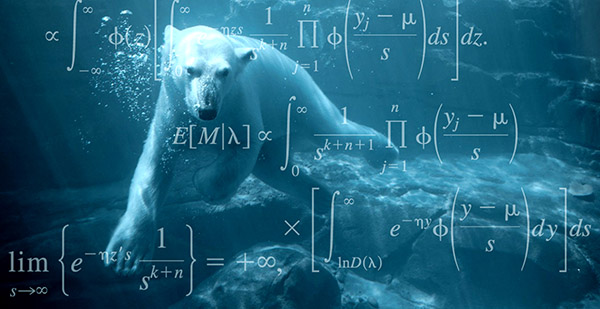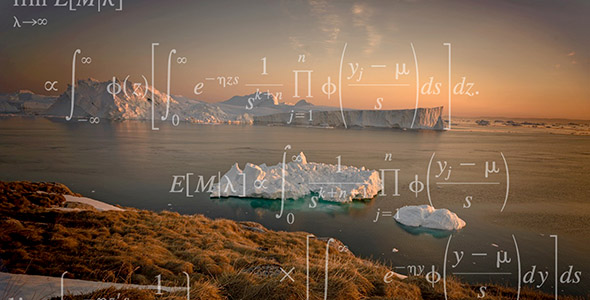MIT SCHOOL OF HUMANITIES, ARTS, AND SOCIAL SCIENCES
Climate-related Humanistic Courses at OpenCourseWare
Help solve the economic, social, and political dimensions of climate change.

MIT History Class: Human and Other Animals; photo by Jon Sachs / MIT SHASS Communications
A directory of 20+ free, climate-related classes whose course materials are available on the OCW website. You will find courses in economics, philosophy, public policy, writing, anthropology, and other fields that provide key perspectives for understanding climate change — and alleviating its impacts.
Related
Solving Climate | Humanistic Perspectives from MIT
Fast Forward: MIT's Climate Action Plan for the Decade
Economics
- 14.444 | Energy Economics
This course explores the theoretical and empirical perspectives on individual and industrial demand for energy, energy supply, energy markets, and public policies affecting energy markets. It discusses aspects of the oil, natural gas, electricity, and nuclear power sectors and examines energy tax, price regulation, deregulation, energy efficiency and policies for controlling emission.
- 14.475 | Environmental Economics and Government Responses to Market Failure
This course explores the theory behind and evidence on regulatory, tax, and other government responses to problems of market failure. Special emphasis is given to developing and implementing tools to evaluate environmental policies.
Political Science
- 17.32 | Environmental Politics and Policy
"Environmental Politics & Policy" explores the workings of environmental policymaking in the United States. Case studies ranging from cleaning up toxic waste pollution to endangered species protection probe the clashes between science and politics at local, state, and federal levels.
- 17.441/17.442 | International Politics and Climate Change
This course examines the interconnections of international politics and climate change. Beginning with an analysis of the strategic and environmental legacies of the 20th Century, it explores the politicization of the natural environment, the role of science in this process, and the gradual shifts in political concerns to incorporate "nature."
Anthropology
- 21A.342 | Environmental Struggles
This class explores the interrelationship between humans and natural environments. It does so by focusing on conflict over access to and use of the environment as well as ideas about "nature" in various parts of the world.
- 21A.429 | Environmental Conflict
This course explores the complex interrelationships among humans and natural environments, focusing on non-western parts of the world in addition to Europe and the United States. It uses environmental conflict to draw attention to competing understandings and uses of "nature" as well as the local, national and transnational power relationships in which environmental interactions are embedded. In addition to utilizing a range of theoretical perspectives, this subject draws upon a series of ethnographic case studies of environmental conflicts in various parts of the world.
- 21A.265 | Food and Culture: The Ethics and Politics of Food Choices
Explores connections between what we eat and who we are through cross-cultural study of how personal identities and social groups are formed via food production, preparation, and consumption. Organized around critical discussion of what makes "good" food good (healthy, authentic, ethical, etc.). Uses anthropological and literary classics as well as recent writing and films on the politics of food and agriculture.
- 21A.303J | Anthropology of Biology
This course applies the tools of anthropology to examine biology in the age of genomics, biotechnological enterprise, biodiversity conservation, pharmaceutical bioprospecting, and synthetic biology. It examines such social concerns such as bioterrorism, genetic modification, and cloning. It offers an anthropological inquiry into how the substances and explanations of biology—ecological, organismic, cellular, molecular, genetic, informatic—are changing. It examines such artifacts as cell lines, biodiversity databases, and artificial life models, and using primary sources in biology, social studies of the life sciences, and literary and cinematic materials, and asks how we might answer Erwin Schrodinger's 1944 question, "What Is Life?" today.
- 21A.338J | Gender, Power, and International Development
After decades of efforts to promote development, why is there so much poverty in the world? What are some of the root causes of inequality world-wide and why do poverty, economic transformations and development policies often have different consequences for women and men? This course explores these issues while also examining the history of development itself, its underlying assumptions, and its range of supporters and critics. It considers the various meanings given to development by women and men, primarily as residents of particular regions, but also as aid workers, policy makers, and government officials.

The "Ethics of Climate Change" brings a moral philosopher’s toolkit to a set of monumental problems: What is the nature of the threat posed by climate change? Should individuals take action or governments? Is the current generation responsible for acting on behalf of future citizens?
Human Factor Series | 3Q with Kieran Setiya: How philosophy can address the problem of climate change
History
- 21H.206 | American Consumer Culture
This class examines how and why twentieth-century Americans came to define the "good life" through consumption, leisure, and material abundance. We will explore how such things as department stores, nationally advertised brand-name goods, mass-produced cars, and suburbs transformed the American economy, society, and politics. The course is organized both thematically and chronologically. Each period deals with a new development in the history of consumer culture. Throughout we explore both celebrations and critiques of mass consumption and abundance.
- 21H.207 | The Energy Crisis: Past and Present
This course will explore how Americans have confronted energy challenges since the end of World War II. Beginning in the 1970s, Americans worried about the supply of energy. As American production of oil declined, would the US be able to secure enough fuel to sustain their high consumption lifestyles? At the same time, Americans also began to fear the environmental side affects of energy use. Even if the US had enough fossil fuel, would its consumption be detrimental to health and safety?
- 21H.380J | People and Other Animals
This course is a historical exploration of the ways that people have interacted with their closest animal relatives, for example: hunting, domestication of livestock, exploitation of animal labor, scientific study of animals, display of exotic and performing animals, and pet-keeping. Themes include changing ideas about animal agency and intelligence, our moral obligations to animals, and the limits imposed on the use of animals. Students taking the graduate version complete additional assignments.
- 21H.421 | Introduction to Environmental History
Focusing primarily on the period since 1500, explores the influence of climate, topography, plants, animals, and microorganisms on human history and the reciprocal influence of people on the environment. Topics include the European encounter with the Americas, the impact of modern technology, and the historical roots of the current environmental crisis.
- 21H.968J | Nature, Environment, and Empire
This class examines the relationship between the study of natural history, both domestic and exotic, by Europeans and Americans, and exploration and exploitation of the natural world, focusing on the eighteenth and nineteenth centuries.
Literature
- 21L.449 | End of Nature
This subject offers a broad survey of texts (both literary and philosophical) drawn from the Western tradition and selected to trace the growth of ideas about nature and the natural environment of mankind. The term nature in this context has to do with the varying ways in which the physical world has been conceived as the habitation of mankind, a source of imperatives for the collective organization and conduct of human life.
Comparative Media Studies/Writing
- CMS.631 / CMS.831 | Data Storytelling Studio: Climate Change
This course explores visualization methodologies to conceive and represent systems and data, e.g., financial, media, economic, political, etc., with a particular focus on climate change data in this version of the course. The course considers the emotional, aesthetic, ethical, and practical effects of different presentation methods as well as how to develop metrics for assessing impact.
- 21W.730-3 | Writing and the Environment
Environmentalists have traditionally relied upon the power of their prose to transform the thoughts and behavior of their contemporaries. In this class, we will do our best to follow in their footsteps. We will consider the strategies of popular science writers; lesser-known geologists, biologists, and hydrologists; and famous environmentalists. Students will have a chance to try out several ways of characterizing and explaining natural environments. Weekly writing exercises will help students develop and explore material for the longer papers.
- 21W.730-4 | Writing on Contemporary Issues: Writing and Reading about the Cultures of Food
If you are what you eat, what are you? Food is at once the stuff of life and a potent symbol; it binds us to the earth, to our families, and to our cultures. In this class, we explore many of the fascinating issues that surround food as both material fact and personal and cultural symbol.
- 21W.775 | Writing about Nature and Environmental Issues
This course focuses on traditional nature writing and the environmentalist essay. Students will keep a Web log as a journal. Writings are drawn from the tradition of nature writing and from contemporary forms of the environmentalist essay.

For Saleem Aldajani ’18, the class has changed how he views the world. "It’s really given me a systematic way of asking the right questions," he says, "kind of like a moral guide towards my obligations and actions."
Program in Science, Technology, and Society
- STS.009 | Evolution and Society
This course provides a broad conceptual and historical introduction to scientific theories of evolution and their place in the wider culture. It embraces historical, scientific, and anthropological/cultural perspectives grounded in relevant developments in the biological sciences since 1800 that are largely responsible for the development of the modern theory of evolution by natural selection.
- STS.034 | Science Communication: A Practical Guide
This class develops the abilities of students to communicate science effectively in a variety of real-world contexts. It covers strategies for dealing with complex areas like theoretical physics, genomics, and neuroscience, and addresses challenges in communicating about topics such as climate change and evolution.
- STS. 038 | Energy and Environment in American History
A survey of how America has become the world's largest consumer of energy. Explores American history from the perspective of energy and its relationship to politics, diplomacy, the economy, science and technology, labor, culture, and the environment. Topics include muscle and water power in early America, coal and the Industrial Revolution, electrification, energy consumption in the home, oil and U.S. foreign policy, automobiles and suburbanization, nuclear power, OPEC and the 70's energy crisis, global warming, and possible paths for the future.
- STS.089 | Technology and Innovation in Africa
What do technology and innovation mean from Africa? This is the central question of this course, which tackles a double absence: Of the meanings and role of technology in African history, on the one hand, and of Africa's place in the global history of technology, on the other. This course alternates between technologies from outside and technologies from within Africa and their itineraries in everyday life, and it is designed to provide students with grounded understandings of technology in Africa for intellectual and action-oriented purposes.
Suggested Links
Environmental Classes at OpenCourseWare
Series: Solving Climate | Humanistic Perspectives from MIT